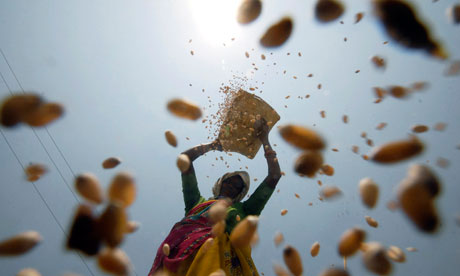As worldwide demand increases for natural resources that are already in short supply, how should aid donors and campaigners respond?
As the 21st-century global economy increasingly hits natural resource limits and planetary boundaries, fundamental questions about fair shares will start to arise. How these arguments play out will exert a crucial influence over prospects for poor people and international development. Are aid donors, NGOs and other development opinion-formers paying attention?
Demand for resources of all kinds – especially food, oil, land, water and "carbon space" for greenhouse gas emissions in the atmosphere – is growing exponentially. It's a logical consequence of the world's population continuing to grow, and the global middle class becoming larger and more affluent.
But even as demand grows, supply is struggling to keep up. The yield gains of the agricultural "green revolution" are running out of steam. Competition for land and water is intensifying. Investment in new oil production is inadequate to meet future demand, according to the International Energy Agency – even before peak oil is taken into account. Carbon space is acutely limited if the world is to limit global warming to anything like 2C. More >>>
